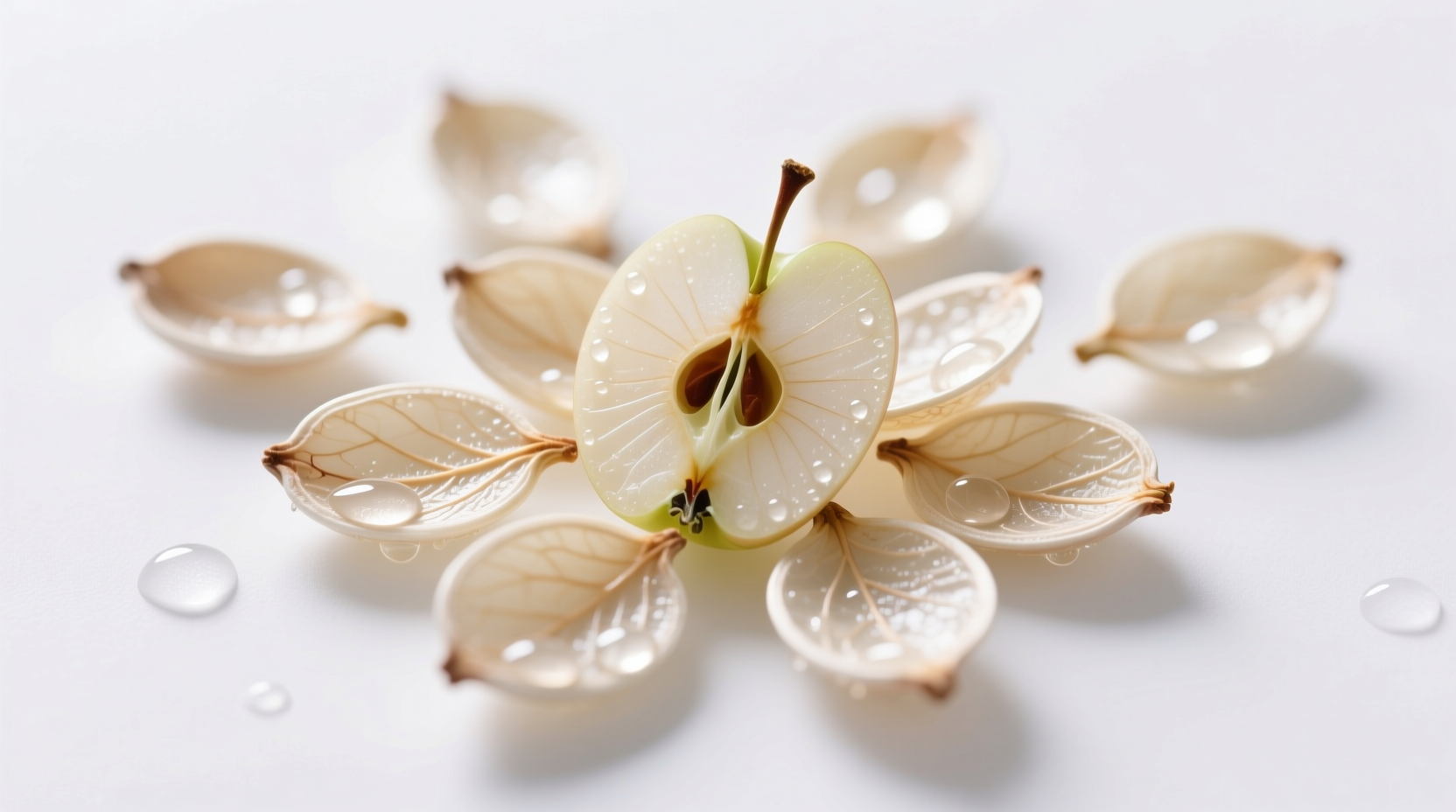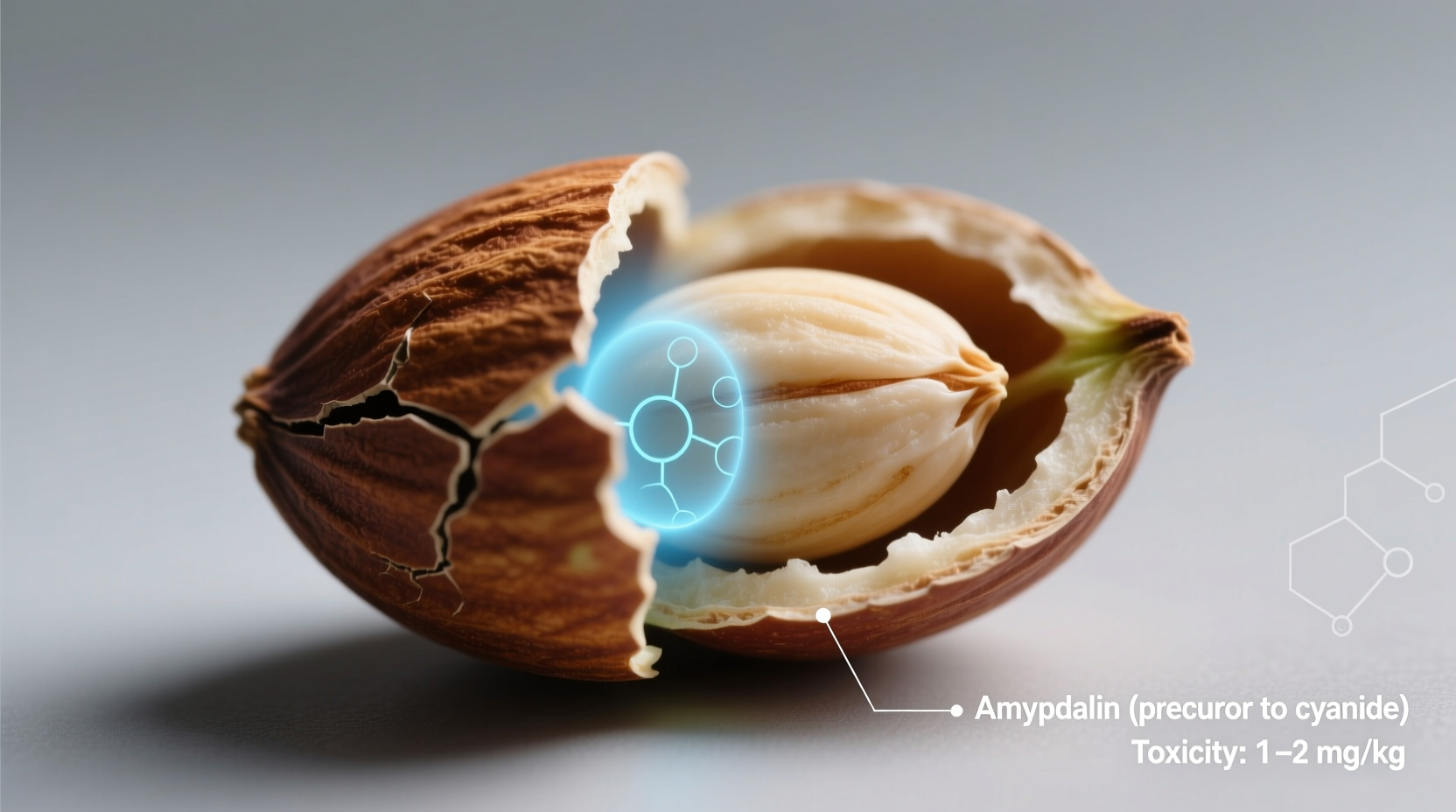Have you ever bitten into an apple and worried after swallowing a seed or two? You're not alone. The idea of cyanide in apple seeds sends shivers down many spines, but the reality is far less alarming than internet rumors suggest. Let's separate fact from fiction with science-based information you can trust.
The Immediate Reality: What Happens When You Swallow Apple Seeds
When you accidentally swallow one or two apple seeds whole while eating an apple, nothing dangerous happens. The hard outer shell of the seed protects you by preventing the release of amygdalin—the compound that can convert to cyanide. Your digestive system simply processes the intact seed and eliminates it without releasing significant cyanide.
According to the U.S. Food and Drug Administration, the amount of cyanide in apple seeds is so minimal that it poses no health risk when consumed in typical amounts. Even if you deliberately chewed and swallowed several seeds, your body can detoxify small cyanide amounts efficiently.

The Science Behind Cyanide in Apple Seeds Explained
Apple seeds, like those of other fruits in the Prunus family (cherries, peaches, plums, and apricots), contain a compound called amygdalin. When amygdalin comes into contact with human digestive enzymes, it can break down into hydrogen cyanide—a toxic compound.
However, the quantity matters enormously. Each apple seed contains only about 0.4-0.6 mg of cyanide. For perspective, the Centers for Disease Control and Prevention estimates that a potentially lethal dose of cyanide for an adult is approximately 1-2 mg per kilogram of body weight.
| Apple Seeds Consumed | Cyanide Content | Potential Effects |
|---|---|---|
| 1-5 seeds (accidental swallowing) | 0.5-3 mg | No noticeable effects |
| 50 seeds (chewed) | 20-30 mg | Mild symptoms possible in sensitive individuals |
| 200+ seeds (chewed) | 80-120 mg | Potentially lethal for average adult |
How Many Apple Seeds Would Actually Be Dangerous?
To reach a potentially lethal dose, an average 70 kg (154 lb) adult would need to consume approximately 80-140 mg of cyanide all at once. Since each seed contains about 0.4-0.6 mg of cyanide, you'd need to chew and swallow 200 or more apple seeds in one sitting.
Consider this: a typical apple contains 5-8 seeds. You'd need to eat the seeds from approximately 25-40 apples, all chewed thoroughly, to approach a dangerous level. This scenario is highly improbable in real life.
What Happens If You Accidentally Swallow Apple Seeds?
If you swallow apple seeds whole while eating an apple:
- The hard seed coating remains intact through your digestive system
- Minimal amygdalin is released
- Your body easily processes and eliminates the small amount of cyanide
- No toxic effects occur
The Agency for Toxic Substances and Disease Registry confirms that the human body can detoxify small amounts of cyanide by converting it to thiocyanate, which is then excreted in urine.
Common Myths About Cyanide in Apple Seeds Debunked
Myth: Apple seeds are highly toxic and dangerous
Fact: The cyanide content is minimal and requires consuming massive quantities to be harmful.
Myth: Swallowing even one seed can poison you
Fact: You'd need to chew and swallow dozens of seeds to experience mild symptoms.
Myth: Apple seed oil is dangerous to consume
Fact: Commercially available apple seed oil undergoes processing that removes amygdalin, making it safe for culinary and cosmetic use.
When Should You Actually Be Concerned?
While accidental seed consumption isn't dangerous, there are rare situations that warrant attention:
- Intentionally consuming large quantities of crushed apple seeds
- Using unprocessed apple seed extracts as alternative medicine
- Young children who might swallow multiple seeds from a single apple
If someone has deliberately consumed a large quantity of crushed apple seeds and experiences symptoms like headache, dizziness, rapid breathing, or nausea, seek medical attention immediately.
Practical Advice for Apple Lovers
Here's what you should actually do about apple seeds:
- Don't worry about accidentally swallowing a few seeds whole
- Avoid deliberately chewing and swallowing large quantities of seeds
- Teach children not to crunch on apple seeds, though the risk remains low
- Enjoy apple juice and cider without concern—commercial products don't contain significant amygdalin
- Consult a doctor if you're considering using apple seed extracts for health purposes
Remember that many common foods contain natural compounds that could be harmful in massive quantities—from cassava to almonds to rhubarb leaves. The dose makes the poison, and with apple seeds, the natural dose is far below dangerous levels in normal consumption.











 浙公网安备
33010002000092号
浙公网安备
33010002000092号 浙B2-20120091-4
浙B2-20120091-4